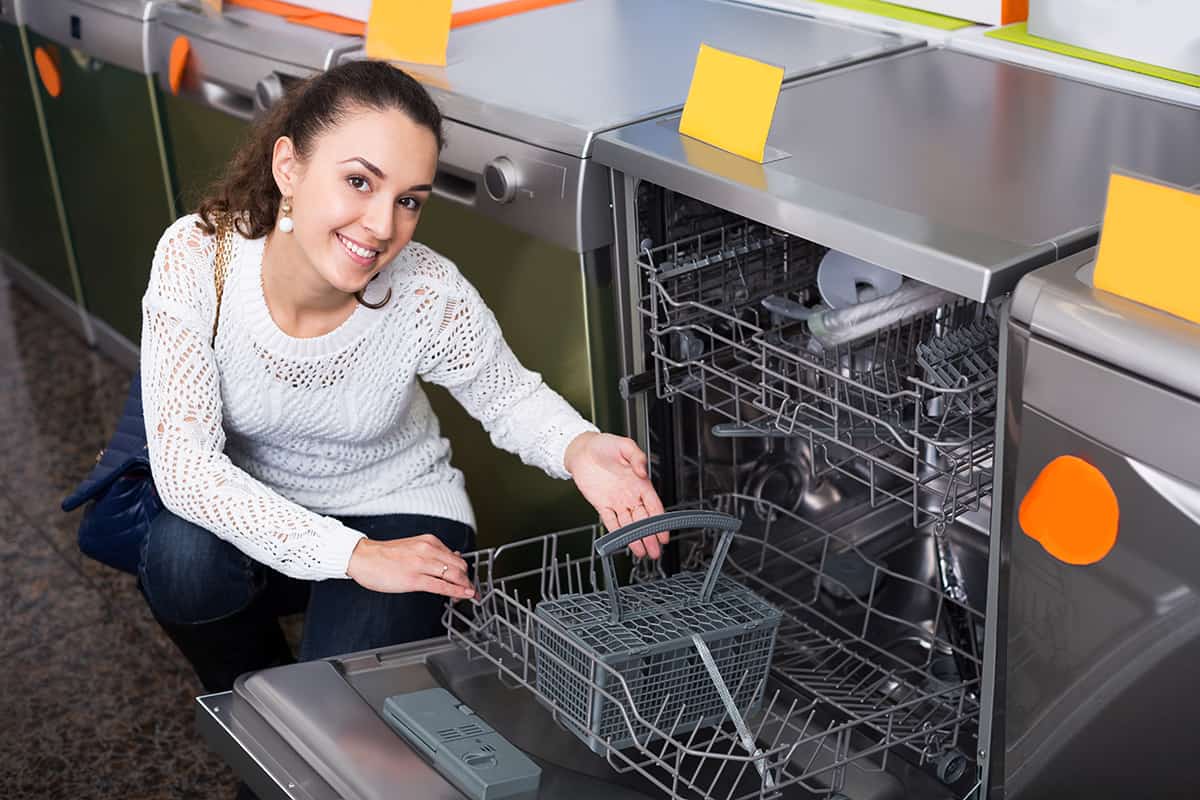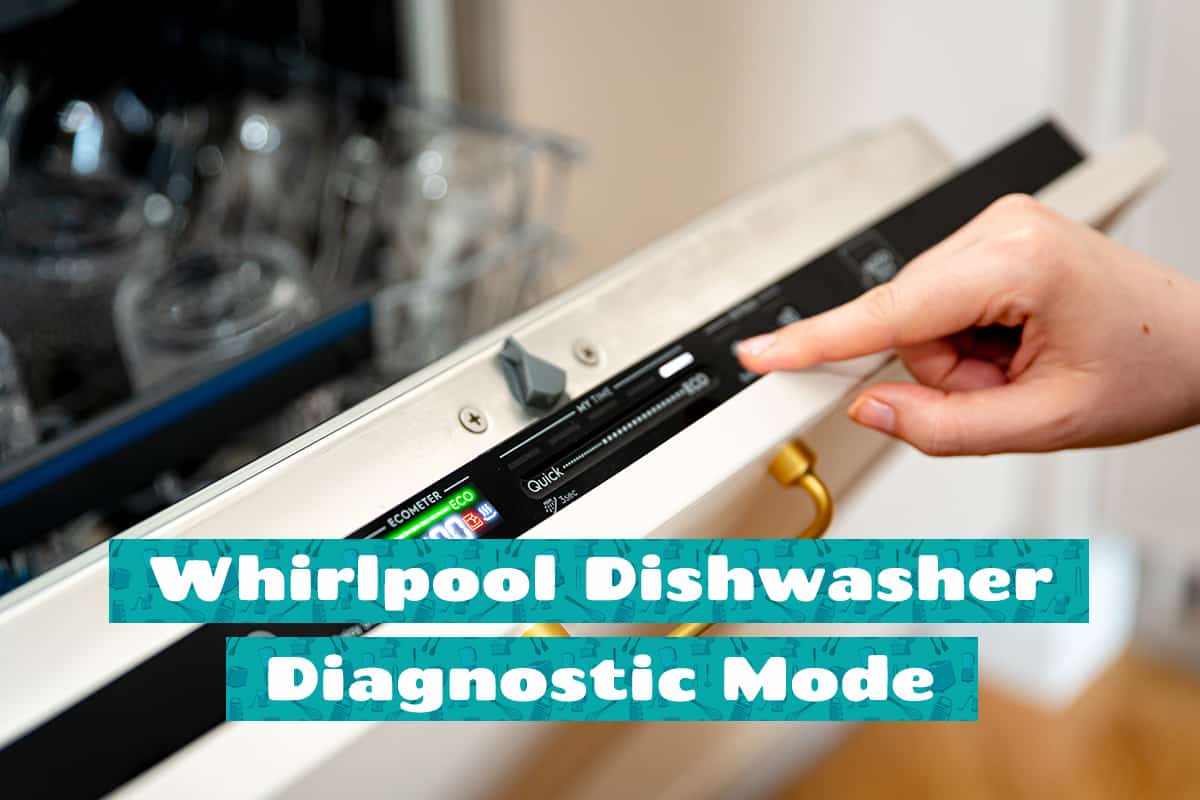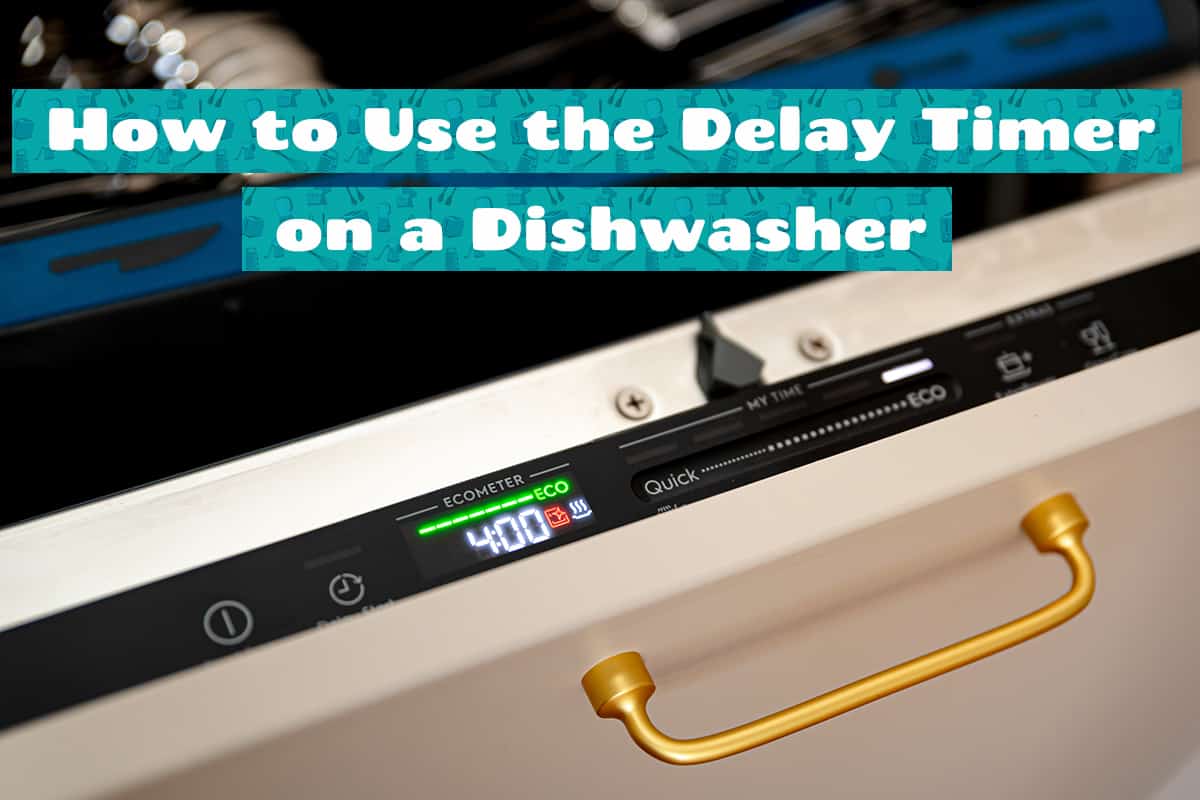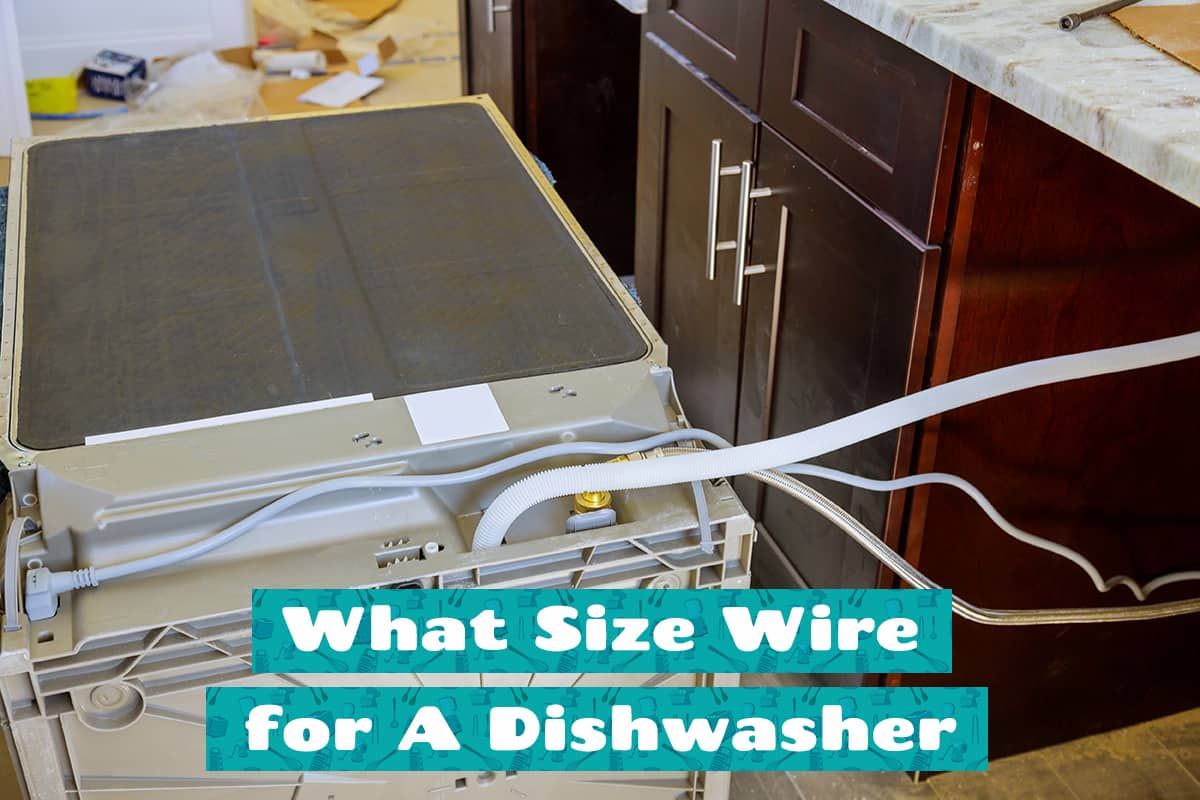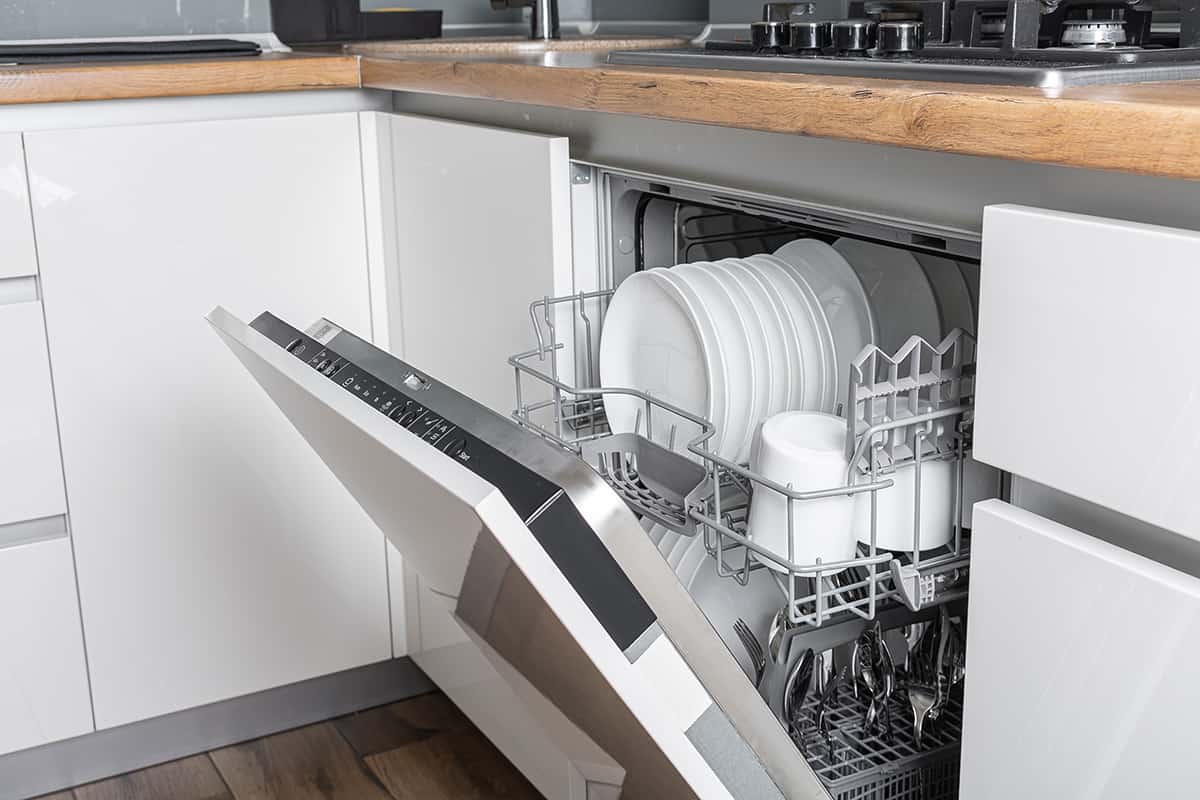Picture this: you’re enjoying a delicious meal with your friends and family, laughing and chatting away. As the plates pile up, you start to feel grateful for your trusty dishwasher, which has faithfully cleaned up after countless meals. But just like any loyal kitchen appliance, your dishwasher can start to show signs of wear and tear over time. Is it finally time to say goodbye to ole reliable and get a new dishwasher?
You’ll know your dishwasher is nearing the end of its life when you notice these signs:
- Visible cracks or damage to the dishwasher’s body
- Persistent leaks or pooling water around the dishwasher
- Dishes that come out dirty or with residue
- Strange noises or grinding sounds during the washing cycle
- Broken or missing pieces inside the dishwasher
- Inefficient water usage or expensive water bills
- constant need for repairs or maintenance
- A foul or unpleasant odor emanating from the dishwasher
- Rust or corrosion on the dishwasher’s interior or exterior
- The dishwasher is over 10-15 years old
In this guide, I’ll explain what each of these signs means in greater detail, as well as what you should look for in your old dishwasher’s replacement.
When to Replace Your Dishwasher
Nothing is meant to last forever, and dishwashers are no exception. Even though your dishwasher has stuck around for you for several years, there will eventually come a time when you will have to proverbially take it out to the back of the shed and put it out of its misery.
But when is that time, precisely? Well, if your dishwasher shows any of the following signs, you’ll know for sure.
1. Visible cracks or damage to the dishwasher’s body
Over time, the dishwasher’s body can succumb to wear and tear, leading to visible cracks or damage. These cracks can cause leaks which can damage floors and cabinets, as well as reduce the insulation of the appliance, resulting in higher energy costs and less efficient cleaning.
2. Persistent leaks or pooling water around the dishwasher
A warning sign that something is off with the dishwasher’s plumbing or sealant is if there is constant seepage or puddles of water around it. Not only can this water damage flooring and cabinets, but it can also lead to mold growth and potential health risks if it is not fixed right away. Furthermore, if water is not draining or circulating correctly during the cleaning cycle, it could be the cause of the pooling water.
3. Dishes that come out dirty or with residue
This issue can be a major annoyance and a hassle to deal with. Clogged or damaged spray arms or filters in the dishwasher could be the cause of your dirty dishes, as well as incorrect amounts of detergent. Not only that, but since you will need to run your dishwasher for a second or third time to clean your dishes, using too much water could lead to higher water bills.
4. Strange noises or grinding sounds during the washing cycle
Mysterious noises coming from your dishwasher may be a sign of overcrowding the racks or a problem with the motor or bearings. Over time, wear and tear can lead to these parts becoming damaged, meaning that your dishes won’t get cleaned properly and can even be dangerous.
If you don’t fix the issue, it may lead to the motor’s complete breakdown and could damage other parts of the appliance. Additionally, these sounds may be caused by the dishwasher being unbalanced or something blocking the spray arm.
5. Broken or missing pieces inside the dishwasher
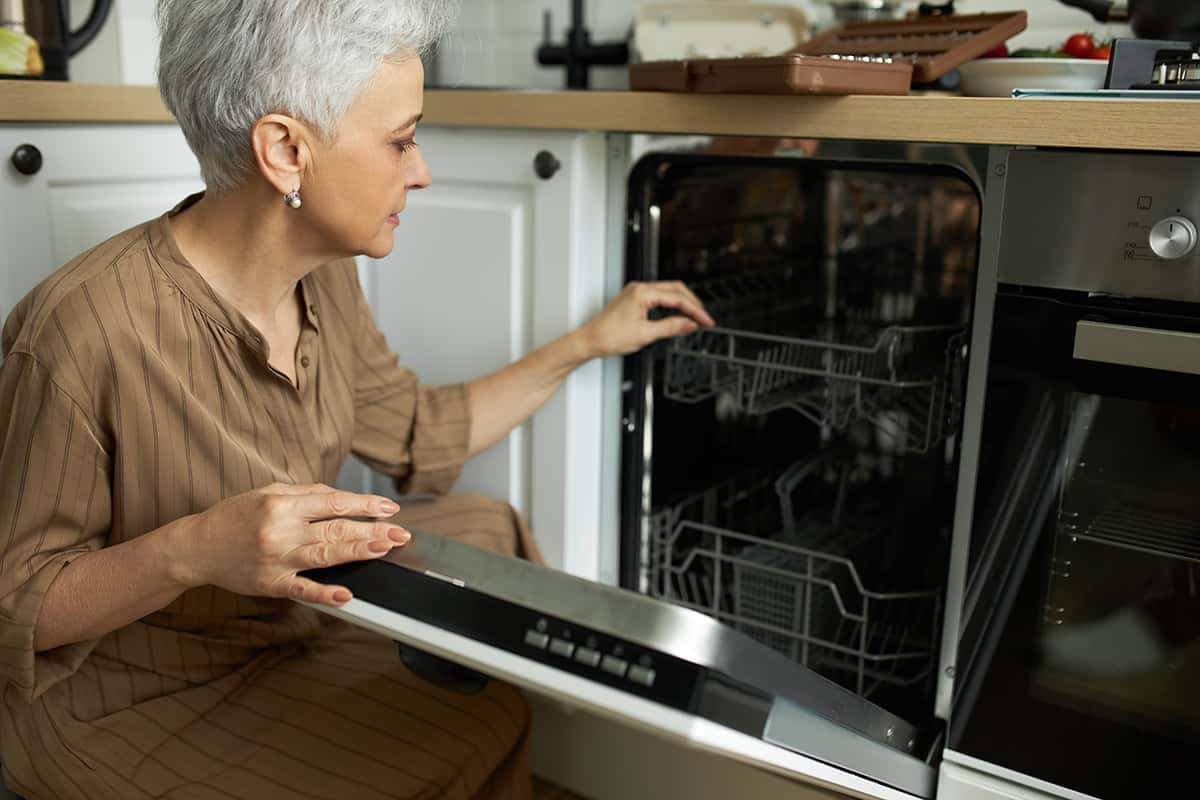
This means your dishwasher may be showing signs of degradation, such as lost or cracked holders, spray arms, racks, or even a soap dispenser. These issues can interfere with the dishwasher’s performance, as cracked components can block the spray arm and lead to uneven washing, or missing pieces can cause dishes to become dislodged during the cleaning cycle.
6. Inefficient water usage or expensive water bills
Several reasons can cause dishes to clean inadequately, potentially causing health risks and an unsanitary environment. Clogged filters, broken spray arms, and plumbing leaks can all be the cause of inefficient water usage, leading to skyrocketing water bills if the problem is left unchecked.
7. Constant need for repairs or maintenance
As your dishwasher ages, it can become prone to breakdowns and costly repairs. Over time, the cost of maintenance and repairs can exceed the cost of just replacing the appliance. If you’re always fixing your dishwasher, it may be wiser to get a new one to save money and guarantee proper cleaning.
8. A foul or unpleasant odor emanating from the dishwasher
An offensive smell coming from your dishwasher may be a sign of mold and mildew accumulating inside. This can be due to food morsels and debris that were not adequately removed or a lack of circulation inside the machine. Such moist, warm conditions are ideal for mold and mildew to thrive, resulting in potential health risks and the spread of the smell to other parts of the kitchen.
9. Rust or corrosion on the dishwasher’s interior or exterior
Moisture in the air, from water leaks or high humidity, can cause rust to form on a dishwasher. If harsh chemicals or detergents are present, corrosion can also be a problem. Rust and corrosion can clog the spray arm, leading to an uneven clean, or cause damage to the interior of the dishwasher. If not taken care of, the rust and corrosion can become worse and require expensive repairs or a full replacement.
10. The dishwasher is over 10-15 years old
The dishwashing machine’s age is a vital element to consider when deciding if it needs to be replaced. Generally, these appliances last for 10 years, contingent on the brand, model, and frequency of use. You may be able to prolong its life to 15 years with frequent maintenance, but its efficiency will diminish, and its parts may become damaged and require costly repairs.
Moreover, outdated dishwashers may not have the same energy-saving capabilities as newer ones, causing higher electricity bills and an inefficient use of water. If your dishwasher is over 10 to 15 years old, investing in a newer, more efficient model might be a good idea to save money, cut energy consumption, and make sure that dishes get cleaned properly.
Things to Look for in a Brand-New Dishwasher

Modern dishwashers have come a long way. They’re bigger, stronger, and more efficient than ever before, but how versatile your brand-new dishwasher is will depends on your budget. If you’re going to replace your dishwasher, keeps your eyes peeled for the following.
1. Energy efficiency
An Energy Star dishwasher is designed to use less water and energy compared to traditional dishwashers. They are up to 12% more efficient and use advanced technologies to save energy, reduce water usage, and minimize environmental impact. This results in lower electricity and water bills, and an eco-friendlier kitchen.
2. Noise output
Dishwasher noise output is measured in decibels (dB). The lower the decibel rating, the quieter the dishwasher. A quiet dishwasher is generally considered to have a rating of 45 dB or lower, while a louder one can be 50 dB or higher. Modern dishwashers are designed with sound insulation and noise reduction features to minimize noise output during operation.
3. Number of washing and drying options
Modern dishwashers offer a variety of washing and drying options, such as different wash cycles, temperature settings, soil sensors, and delay start. They also have various drying options, such as heated drying, fan-assisted drying, and air-drying. These features allow for customized cleaning and drying based on the type of dishes, soil levels, and preferences.
